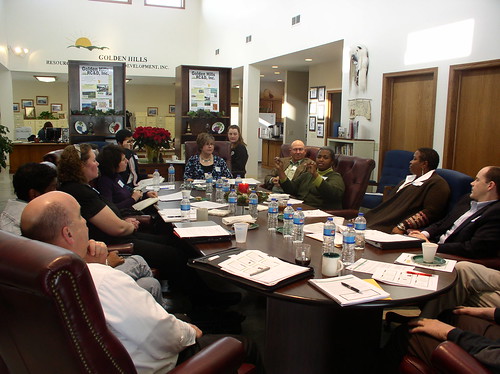A regional initiative in Southwest Iowa originally intended to train farmers on local-food production has evolved into a rural-urban partnership that touches a poverty-stricken community. I joined USDA Rural Development Acting Deputy Under Secretary Doug O’Brien in Oakland, Iowa, recently to meet with officials from the Golden Hills Resource Conservation and Development (RC&D) council.
Golden Hills was one of seven “Great Regions” designed by Rural Development earlier this year for its plan to, among other things, provide business and management skills training for up to 15 farm-based businesses.
The scope of the project, however, took a turn when Golden Hills leaders were introduced to organizers of the Omaha, Nebraska-based non-profit No More Empty Pots (NMEP). That organization works to enhance self-sustainability in North Omaha, an area that NMEP says ranks first in the U.S. in the per capita number of children living in poverty and third in the per capita number of families living in poverty.
Golden Hills’ local food coordinator Bahia Barry and No More Empty Pots project manager Susan Whitfield took the concept of farm-based business training in rural Iowa and expanded it to include training for urban gardeners and a broader approach to regional food system development.
Together they have launched the Missouri River Valley Community Food System Alliance, a two-state, multi-county effort to develop and expand resilient community-based local food systems. The Alliance has as its goals the improvement of regional health and wellness through increased access to locally-grown food, and increased economic activity through the development of food-based businesses, with a focus on underserved communities.
"Great Regions is about building on local assets to carry out a local vision to create economic opportunity,” said Deputy Under Secretary O’Brien. “The regional collaboration in Southwest Iowa and North Omaha is an exciting example of what is possible when people come together regionally to create a better future."
O’Brien mentioned other partners, including Metropolitan Community College in Omaha and Iowa Western Community College in Council Bluffs, which bring additional resources. For example, Metro C.C. has incorporated horticulture into its culinary arts program and uses produce from gardens on its North Omaha campus. And he says USDA – through its Know Your Farmer, Know Your Food program – is ready to assist as well.




